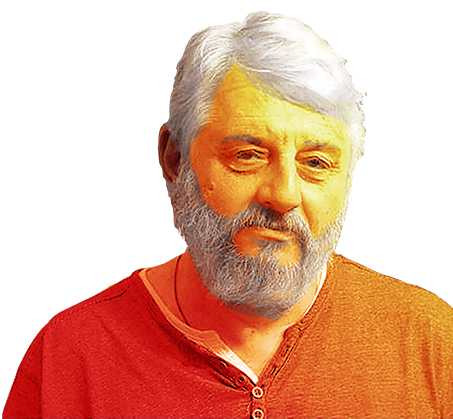
Published on the website: https://www.wordsforwar.com/
My brother brought war to our crippled home.
by Boris Khersonsky
My brother brought war to our crippled home.War, a little girl, hair tied in bow — she can barely walk on her own,
my brother says, she can stay with you, we’ll go out, we’ll hit the road,
she’s so little, she can’t keep up, can’t roam around alone!
My brother left, but war stayed, and she really is small.
She tried to help around the house, she swept the floor and all,
but she is sort of weird, she pokes around in the corner,
takes junk out of grandma’s oak chests in no particular order.
At night she’s restless — and we have no peace.
She keeps silent — we’ve had no days worse than these.
The windows are broken. It is too cold to stir.
And my brother still hasn’t come back for her . . .
Брат привел войну в наш искалеченный дом. . .
Брат привел войну в наш искалеченный дом,
война – это девочка с бантом, ходит с трудом,
брат говорит – пусть у вас поживет, а мы погуляем, пойдем,
она у нас еще маленькая, не мокнуть же ей под дождем!
Брат ушел, а война осталась, и вправду она мала,
хотела помочь в хозяйстве, в кухне пол подмела,
сама какая–то странная, шарится по углам,
из бабушкиных сундуков тащит ненужный хлам.
А ночью не спит – и нам не уснуть вместе с ней.
А днем все молчит – и не было здесь печальнее дней.
Выбиты в окнах стекла, Выстужено жилье.
И брат все никак не придет, чтоб увести ее...
(July 2014)
Boris Khersonsky was born in Chernivtsi in 1950. He studied medicine in Ivano-Frankivsk and Odessa. He initially worked as a neurologist, before becoming a psychologist and psychiatrist at the Odessa regional psychiatric hospital. In 1996 Khersonsky took on an appointment at the department of psychology at Odessa National University, before becoming chair of the department of clinical psychology in 1999. In the Soviet times, Khersonsky was part of the Samizdat movement, which disseminated alternative, nonconformist literature through unofficial channels. Following the collapse of the Soviet Union, Khersonsky came out with seventeen collections of poetry and essays in Russian, and most recently, in Ukrainian. Widely regarded as one of Ukraine’s most prominent Russian-language poets, Khersonsky was the poet laureate of the Kyiv Laurels Poetry Festival (2008) and the recipient of the Brodsky Stipend (2008), the Jury Special Prize at the Literaris Festival for East European Literature (2010), and the Russian Prize (2011).
июль 2014
No comments:
Post a Comment